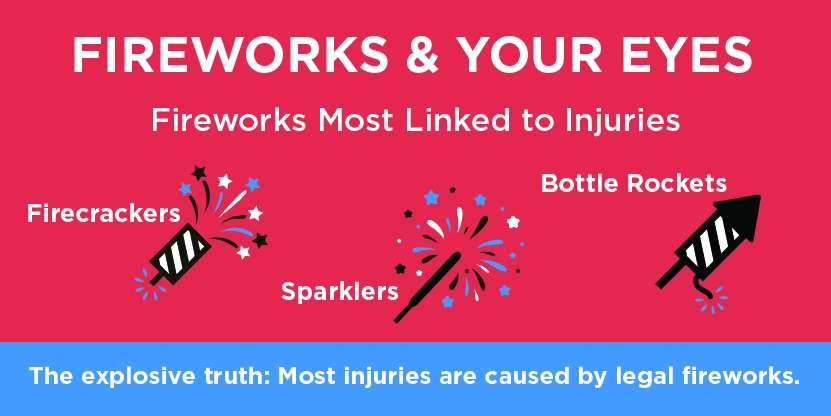Every Fourth of July, families, friends, and communities come together throughout the country to view firework displays. And every year, we encourage the public to leave the fireworks to the professionals and go to a public display. At the same time, fireworks sales have spiked as much as 400 percent during the last year, according to news reports. Windy City Retina and the American Academy of Ophthalmology are concerned that trips to the hospital for fireworks-related injuries will mirror this spike in fireworks sales.
We remind the public that consumer fireworks are dangerous both to those who set them off and to bystanders. Here are the facts:
- The US Consumer Product Safety Commission reported 10,000 injuries and 12 firework-related deaths in 2019.
- A 2017 study showed that 65 percent of people injured by fireworks are bystanders.
- An April 2020 study in JAMA Ophthalmology, showed that an estimated 34,548 firework-related eye injuries occurred between 1999 and 2017, with approximately 65 percent occurring in children. The most common injuries were ocular burns, ocular foreign body, and conjunctival irritation. Most injuries occurred at home (75 percent) with consumer use of fireworks during the 4th of July. Although all types of consumer fireworks are dangerous, bottle rockets caused the most severe injuries, such as ruptured globes.
There is significant variability among state and county laws regarding the use of consumer fireworks. Setting off fireworks at home is illegal in some states. For people in states in which it’s legal, here’s how to make sure your backyard celebration doesn’t end in the ER:
- Don’t pick up duds and misfires: Fireworks nearly cost an Ohio firefighter his sight. He took all the right precautions for his backyard Fourth of July fireworks celebration. But a split-second decision to inspect a “dud” was almost fatal.
- Supervise children closely: Sparklers seem like harmless fun for the kids, but they are responsible for about 1,400 eye injuries each year. Even those tiny poppers or snappers can pose dangers.
- Wear protective eyewear: Ophthalmologists recommend American National Standards Institute (ANSI)-approved protective eyewear. Stop by any hardware store and pick up some safety glasses for the entire family.
If you suffer an eye injury from a firework:
- Seek medical attention immediately.
- Do not rub, rinse or apply pressure to your eyes.
Do not remove any objects that are stuck in the eye.

